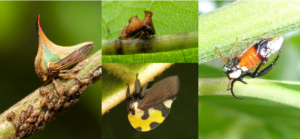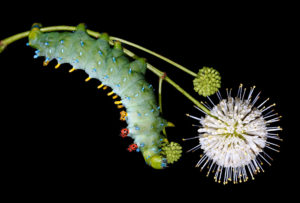Tuesday November 13th
MCZ 101, 26 Oxford Street, Harvard University
07:30 PM
An Ant for a Hat:
The fashion-forward treehopper and the evolution of novelty
Cera Fisher
PhD Candidate, University of Connecticut

Cera Fisher loves True Bugs. She received her Bachelor’s and Master’s degrees from Arizona State University, where she studied the history of embryo research as a member of the Embryo Project. In her transition from historian to scientist, she spent a salt-filled summer as an intern at the Marine Resources Center of the MBL in Woods Hole, MA, and taught two semesters of Core Science at Roger Williams University in Rhode Island before arriving in Connecticut. It was love at first sight the first time she saw a treehopper, and she has spent the last six years getting to know these charismatic bugs and trying to find out how they build that thing that we call the treehopper “helmet”.
The talk is free and open to the public. The meeting is readily accessible via public transportation. Parking is available in the Oxford Street Garage with advance arrangement, as described here, or (usually but not always) at spaces on nearby streets. Everyone is also welcome to join us for dinner before the talk (beginning at 5:45 PM) at the Cambridge Common, 1667 Mass Ave., Cambridge.
CEC meetings are held the second Tuesday of the month from October through May. The evening schedule typically includes an informal dinner (5:45 to 7:15 PM) followed by our formal meeting (7:30 – 9:00 PM). The latter begins with club business and is followed by a 60 minute entomology related presentation. Membership is open to amateur and professional entomologists.
(Photo credits (L to R) E. P. Mallory; top center, Hope Abrams; bottom center, Katja Shulz ; Rogelio Quinatoa)



